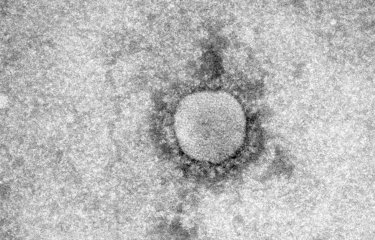Since May 20, 2015, South Korea has been facing an outbreak of MERS-CoV that began with a traveler who returned from the Middle East. To date (as of June 24, 2015), there have been 179 cases and 27 deaths in Korea. As part of its global health mission, the Institut Pasteur is actively involved in monitoring the development of the outbreak, through its dedicated outbreak investigation taskforce.
Press release
Paris, June 25, 2015
One of the Institut Pasteur's main priorities is to use its research for the benefit of public health and to share its knowledge and expertise with the international community. The Institut Pasteur is fully committed to supporting efforts to control the MERS-CoV outbreak that is currently unfolding in South Korea.
From June 8 to 13, 2015, WHO led a joint Korea-WHO mission to South Korea, comprising experts from various disciplines, to help the country bring the epidemic under control. Doctor Maria Van Kerkhove, an epidemiologist leading the Outbreak Investigation Taskforce at the Institut Pasteur's Center for Global Health in Paris, and Professor Malik Peiris, a virologist at the Hong Kong University-Pasteur Research Pole were asked to participate as technical advisors to the WHO mission to South Korea.
The Mission found that the outbreak in South Korea was similar to health care facility outbreaks that have occurred in the Middle East over the last two years. What was new, however, was that Korean hospital practitioners had never seen MERS-CoV before and were unfamiliar with how to treat it. Overcrowded emergency rooms and the custom of patients in South Korea consulting several doctors before deciding where to go for treatment facilitated the spread to several health care facilities in the country. Sequencing of the virus has revealed that there are no changes in the virus in South Korea compared to viruses circulating in the Middle East and scientists, including Malik Peiris who has been studying the characteristics of MERS-CoV viruses from several countries in the Middle East and Africa, believe that the virus has not so far changed to become more transmissible.
While the early response was not sufficient to contain the outbreak quickly, Mission Member Maria Van Kerkhove comments : "The outbreak is not yet over, but the actions taken by the Government of Korea mean the right measures are in place to stop this outbreak. I am cautiously optimistic that the decline in cases seen in recent days is real, but it will be several weeks before we can be sure these trends are real."
Prof Christian Bréchot, President of the Insitut Pasteur, adds: "The missions in Korea of Dr Maria Van Kerkhove and Malik Peris, as well as the commitment of the Institut Pasteur Korea, headed by Dr Hakim Djaballah, illustrates the impact of the Pasteur Center for Global Health (with the creation of an Outbreak Investigation Task Force) and the International Network of the Institut Pasteur. The Institut Pasteur will collaborate with the South Korean authorities and WHO to fight against this major threat."
This is a wake up call, WHO’s Emergency Committee and Advisors warned during last week’s 9th emergency committee meeting for MERS-CoV. The Institut Pasteur has made its resources available to the international community to help control the MERS-CoV outbreak in South Korea and in the Middle East and monitor any spread of the virus to other countries.
Find out more about MERS-CoV and the Institut Pasteur's role by reading the disease fact sheet.



